DECATUR, Ga.—At her top-rated New Jersey high school, Dax Vandevoorde was a standout math student and self-described nerd who became president of the school’s prestigious robotics team her senior year. There she joined fellow students in designing and building a 120-pound robot impressive enough to be entered in a global competition. There was just one problem: All but three members of her 50-person team were men.
When it came to selecting a college, Vandevoorde looked at several highly regarded schools. But she wanted a place where women in STEM weren’t anomalies. “I was so tired of being the female engineer,” she said. “I wanted to go someplace where the top student in the class is female, where the class clown is female, where the person leading everything is female. That way everyone focuses on your accomplishments and your passion and your drive, and not on the fact that you are a woman.”
Vandevoorde, 21, found such a place at Agnes Scott College, a private 1,016-student all-women’s institution with an innovative, globally focused curriculum that blends the traditional liberal arts with foreign travel, real-world business experience, and leadership training. Originally one of the “Seven Sisters of the South”—the below-the-Mason-Dixon-Line version of a Wellesley or a Smith—“Agnes” has gone from educating largely privileged white women to a college where women of color represent over half of the multi-ethnic student body.
At first, Vandevoorde hadn’t even considered a liberal arts college, instead looking at engineering schools. But Agnes Scott’s interdisciplinary approach, small and inclusive atmosphere, and opportunities for hands-on research provided all that she wanted and then some. Would a traditional engineering school have offered “Fashion, Ethics and Capitalism?” A favorite course that pulls together economics, philosophy, and art “is just not something the average computer science enthusiast gets the chance to do,” Vandevoorde said.
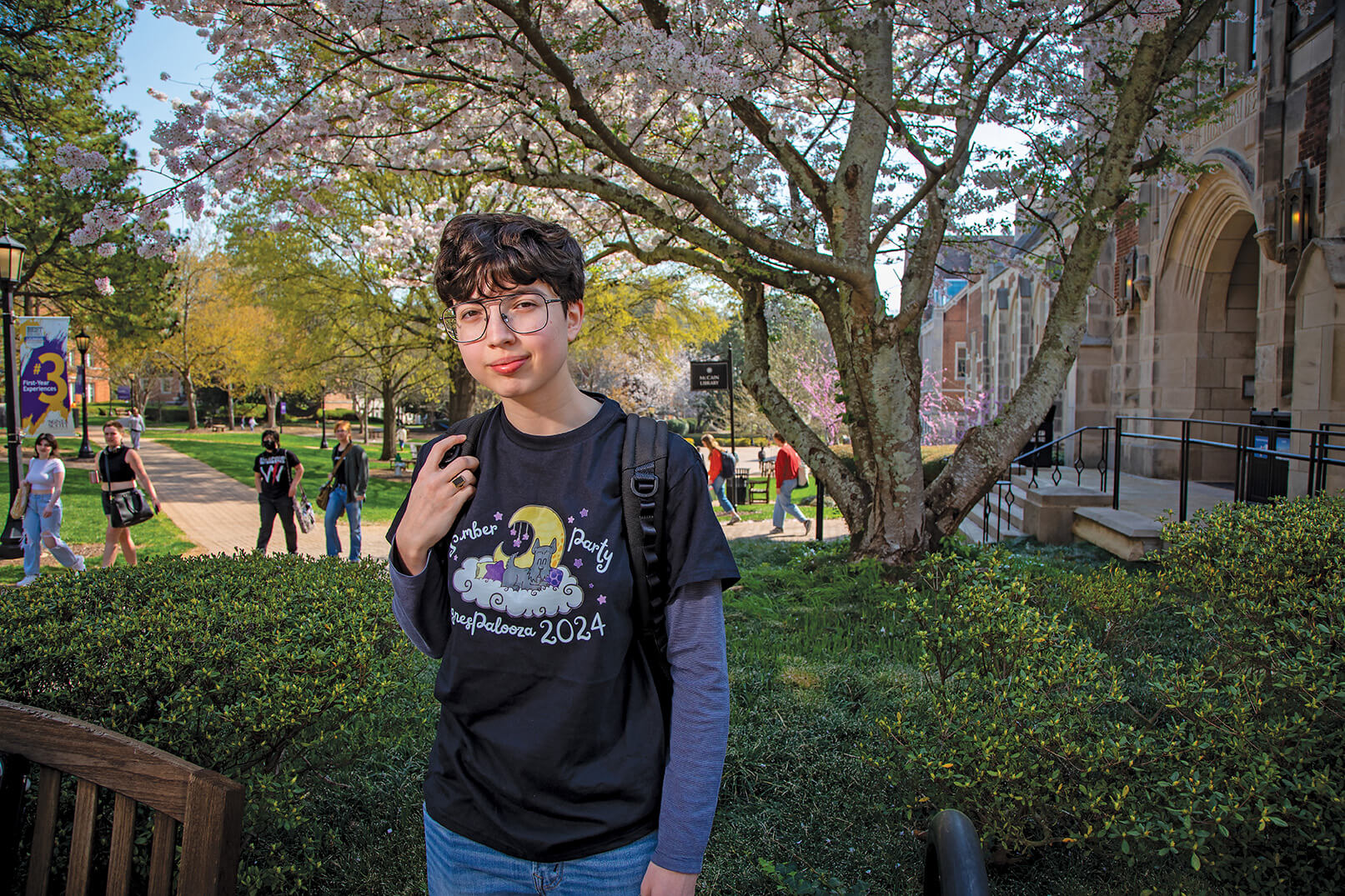
The course is offered as part of Agnes Scott’s signature SUMMIT curriculum, a unique four-year experience that focuses on global learning and leadership development in a way that builds critical thinking and communication skills. With immersive travel experiences, the coursework creates crucial links between students’ academic studies and the world beyond the college’s historic gothic walls. (Agnes Scott’s idyllic campus says “college” so iconically that it has served as a backdrop for numerous movies and television shows.)
In the second semester of their first year, students take a required course called Global Journeys, which examines four common topics—globalization; identity of self and “the other;” imperialism, colonialism, and diaspora; and the ethics of travel—through the study of different regions and countries. Among this year’s destinations were Morocco, Peru, the Navajo Nation, and Florence, Italy. Students prepare by studying the geography, economy, culture, and politics of the region, then take a faculty-led, eight-day trip. The weeks afterward are dedicated to presentations, reports, and reflections through which students further build cross-cultural knowledge. “It’s not a tourist trip,” said President Leocadia (Lee) Zak. “It’s an investigation.”
For her trip, Vandevoorde traveled to Paris, where she and her group dove into the history and sociological implications of fashion, its economic aspects, and the societal forces shaping various designers’ work. “And then you come back and you are just interacting with the world in a completely different way,” said Vandevoorde. “And that gives you the kind of perspective you are going to use when making business connections and talking to people who are very different from you.”
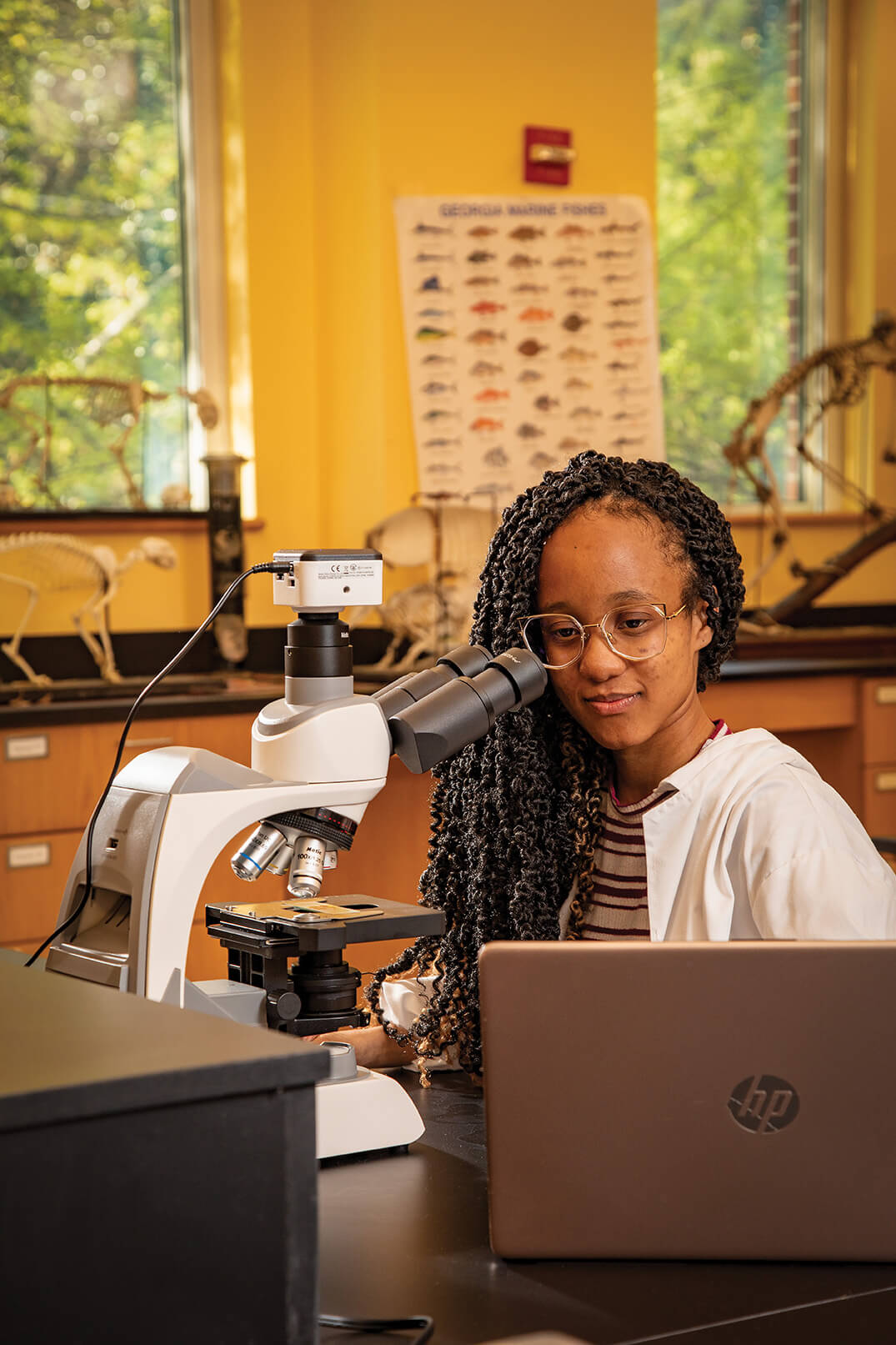
Because of the COVID-19 pandemic, senior Faith Lockhart, a neuroscience major, didn’t get to visit China, which she studied through a lens of immigration and international trade. Still, her group met virtually with Chinese professors and others in the country. Leila Reed, a senior majoring in psychology, focused her global studies on Manchester, England, digging into the scientific process and the Industrial Revolution. And Madison Jennings, a political science and religion major, made up for her COVID-canceled trip to China with a later trip to Jordan, where she studied humanitarian aid practices in the Middle East.
A global perspective
“The global study tour really changed my life,” Jennings said. “Not only was the classroom learning great, but just being in another country, communicating with locals, learning different languages—it changed the way I approach situations and people from different backgrounds.” Along with an internship at The Carter Center in Atlanta, where she worked with teams stationed in Liberia, the Jordan trip fed Jennings’ aspirations to become a human rights lawyer. She’s on her way: This fall she is off to the University of Oxford to study for a master’s degree in public policy as a 2024 Rhodes Scholar.
Every student at Agnes Scott is required to participate in Global Journeys and, significantly, they often do so before they know what their major will be. “The major is not really germane,” said Rachel Bowser, vice president for academic affairs and dean of the college. “What we want them to see is the universality of the experience, about how what they are getting in their liberal arts courses applies to all kinds of settings and situations.”
She continued: “There is kind of an illusion in the way people think about a liberal arts education, because that sector has often served students who are disproportionately privileged. So we think of the liberal arts as being oriented toward those students.” But in fact, Bowser said, “distributed learning of the liberal arts ‘gen-ed’ core, in the way that it touches all these places and builds bridges, is actually the most universally applicable kind of education there is. It allows students to see into ideas and fields that they haven’t necessarily had first-person access to before.”
Global Journeys is not junior year abroad. Those traditional immersive experiences, while they can create a sense of belonging and a connection to academic studies, usually happen late in one’s undergraduate career, President Zak pointed out. By moving the travel experiences to the front end and making them universal, she said, Agnes Scott creates that sense of belonging early on, bringing immediate relevance to classroom learning.
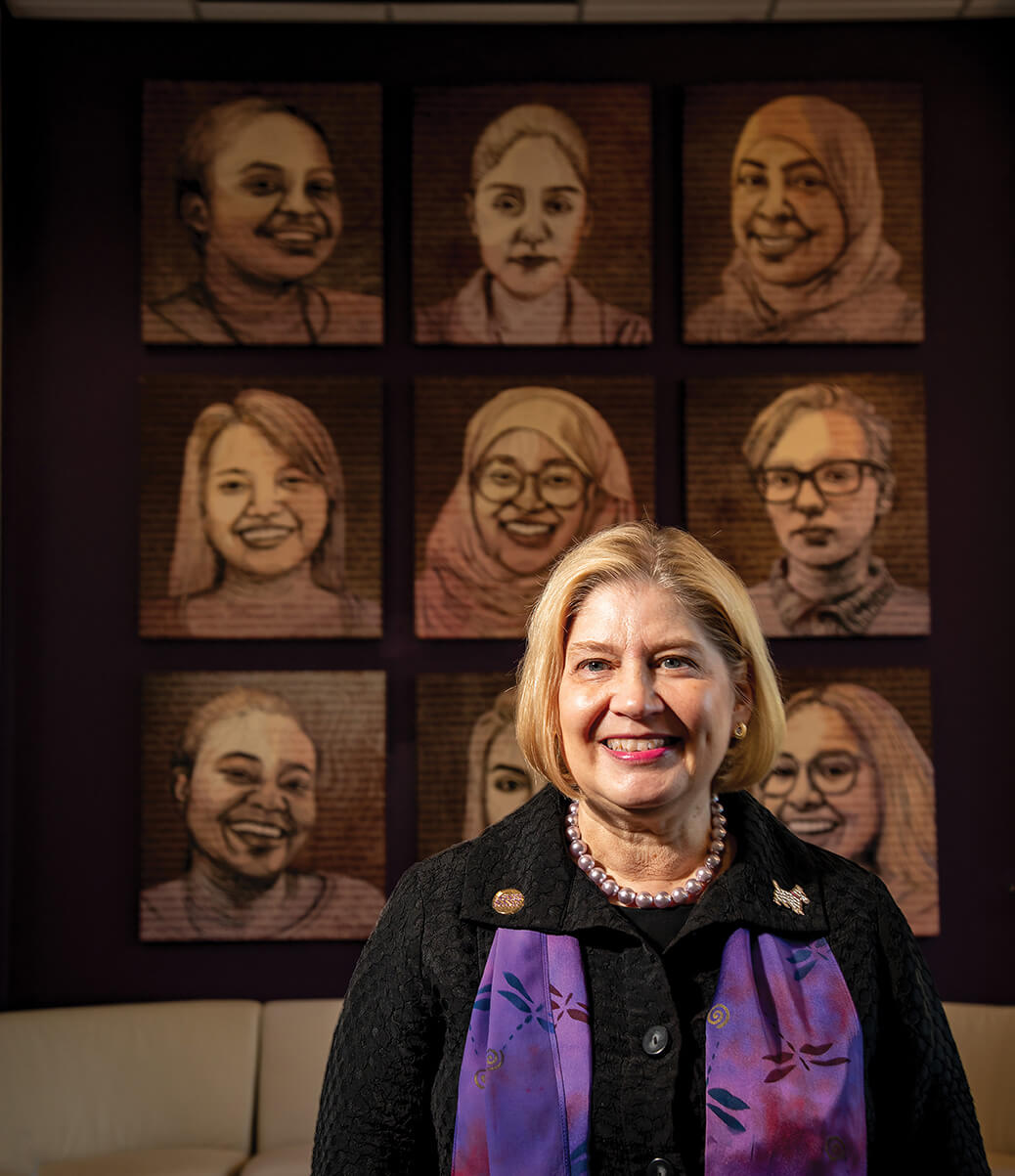
SUMMIT also serves a less obvious but important purpose: It gives students a way to talk about their education. “First-generation students, especially, when someone asks them what they are learning and what they are going to do with that, they have to have an answer that they believe in,” Zak said. “And it’s often not until your junior year, when you do an internship or study abroad, that you have a way to talk about what you are doing. But we give them these experiences up front, and they can see themselves in the story.”
Their horizons now broadened, all second-year Agnes Scott students participate in a program called SCALE, or Sophomore Class Atlanta Leadership Experience. It connects students to nonprofits and global corporations with offices or headquarters in Atlanta. Students in this course learn about organizations as diverse as BlackRock investments, AT&T, and the Consulate General of Switzerland.
In their SCALE experience, students build on the leadership skills and global outlook they developed in their first year. They see how these qualities apply to multinational corporations and NGOs that serve ethnically and culturally diverse populations in Atlanta and abroad. “They are able to bring that learning full circle,” said Heather Scott, assistant dean for inclusive leadership.
This year, one group of students met with executives at the Atlanta office of Kuehne and Nagel, a Swiss logistics and supply company with offices worldwide. They learned how the company benefits from employee diversity and how current events affect trade and transportation—how piracy, for instance, might force a firm to move cargo via planes rather than ships. “So the students are saying, ‘Wow, what is happening around the world impacts this business right here in Atlanta,’” Scott said.
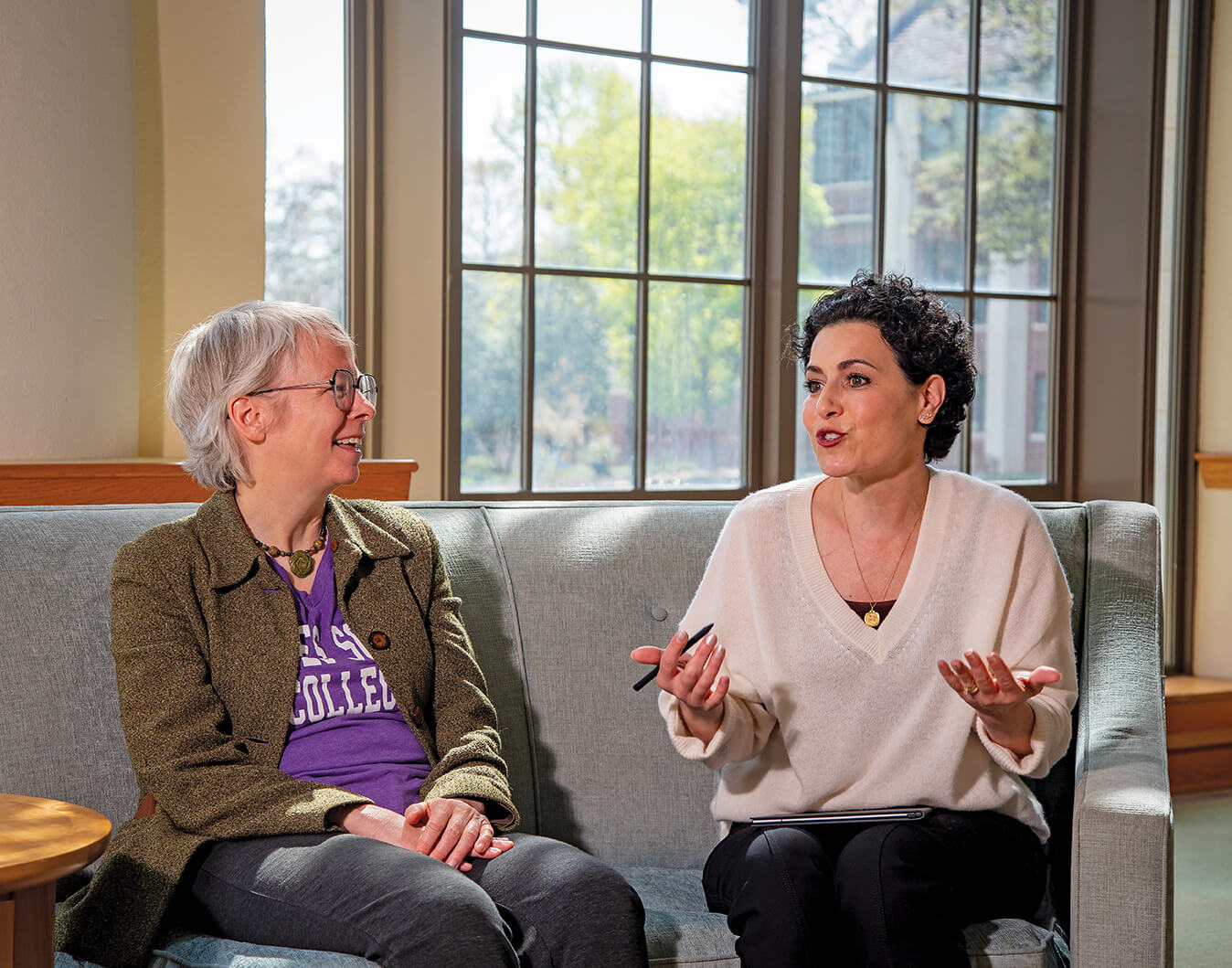
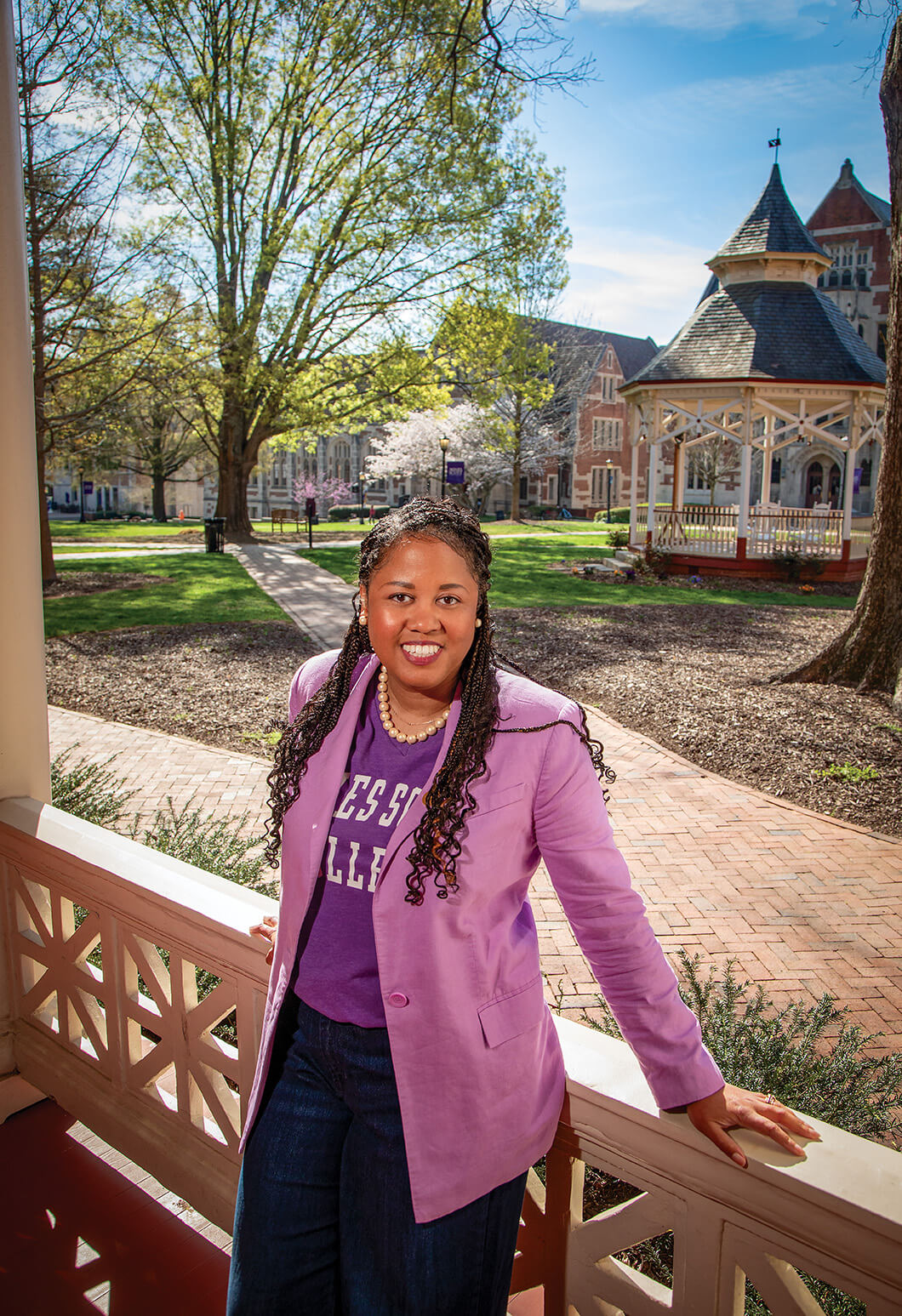
Vandevoorde’s SCALE experience took her to BlackRock, the multinational investment company, and it sparked a passion she sees as a target for further study. The BlackRock team connected with students over issues related to energy, the environment, and corporate governance—“how you can kind of throw your weight around to get more eco-friendly investments,” Vandevoorde explained. She zeroed in on BlackRock’s massive capacity to collect and analyze data—in particular, how the necessary computing power might harm the environment.
“You are looking at so much data running all the time—every minute, every second—and that really opened my eyes. My interest is in making large data centers more efficient, cutting down on the energy they use,” she said. “SCALE helped me narrow my mission. All this theory I’m learning can be quickly applied to help solve the pressing problems of today, and the ones on the horizon.”
As with Global Journeys, the days-long SCALE site visits are bookended by preparation and debriefing. Before visiting their chosen organization, students learn how to conduct research—differentiating between unreliable and vetted sources. They then assess the organization, reviewing financial documents, mission and value statements and the like. Afterward, they write reports, and those who choose to do so present their findings and observations to students and faculty.
Lab partners from business
“This is really a lab experience,” Scott explained. “In their first year, students have had the leadership theory, but they now must put those theories into action. Like how does Porsche (a college partner) tackle the challenge of having electric cars on the road by whatever year they have set? The students are doing a deep dive into leadership challenges, and the partner organizations are addressing them.”
The American Association of Colleges and Universities has designated several “high-impact practices” that, research shows, bring significant educational benefits to students. Among them are common intellectual experiences, diversity and global learning, first-year experiences, collaborative projects, writing-intensive courses, community-based learning, and undergraduate research.
“Scotties” appreciate that their college checks all of those boxes.
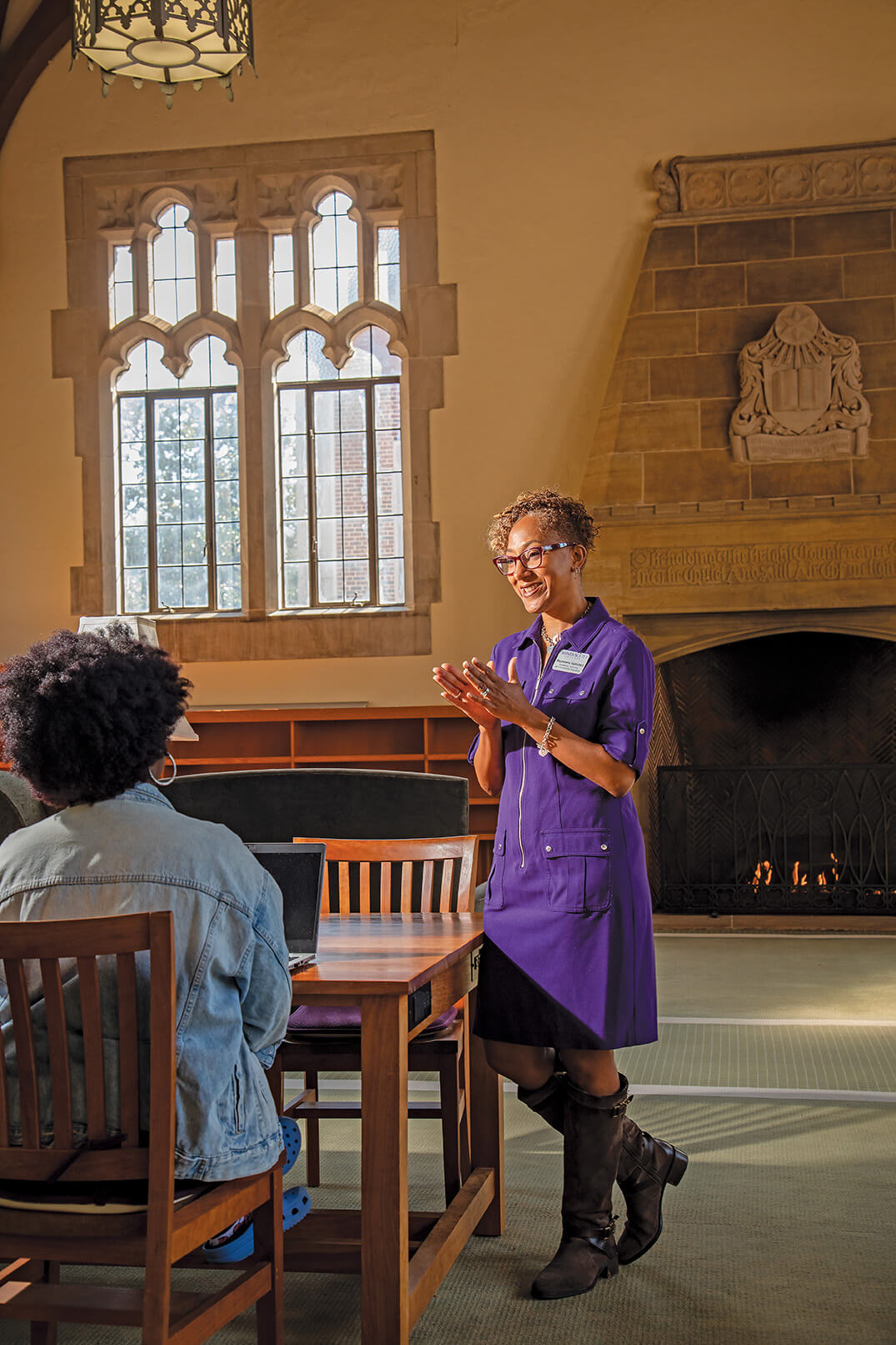
Lockhart, who came to Agnes Scott on a music scholarship and changed her major to neuroscience, especially welcomes the opportunities for deep research more commonly available at the graduate level. “A special thing they do here, especially with STEM, is that instead of teaching you to merely be a lab assistant, they teach you how to be a scientist,” she said. “They give you a lab animal, they give you a budget, and say ‘OK, you’ve got to figure this out.’”
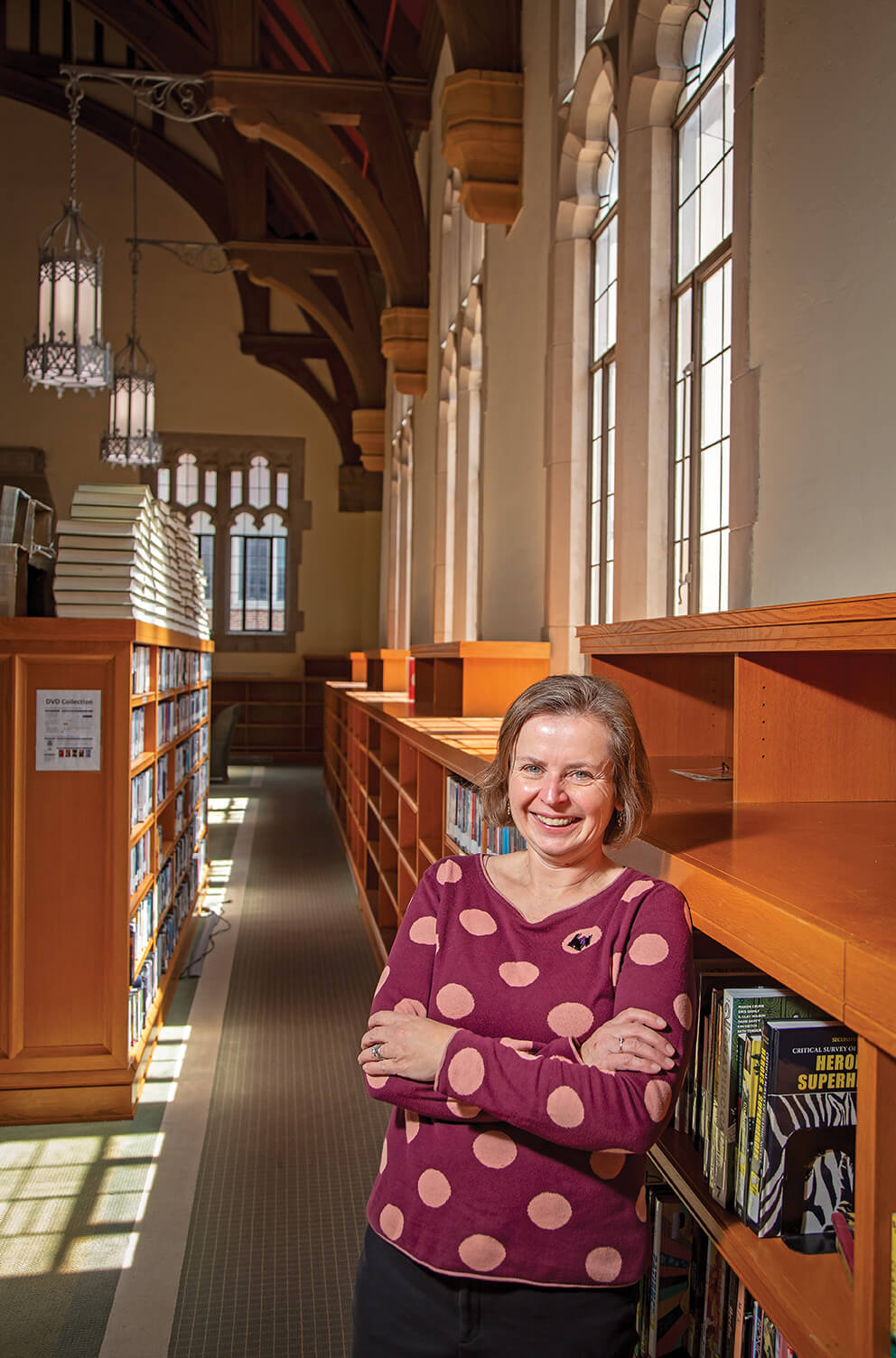
Her professors and advisors have also been instrumental in helping Lockhart build her professional network. Through her newfound contacts, she has worked as a neuropsychology trainee at the Shepherd Center hospital in Atlanta and as a summer research fellow at the Medical University of South Carolina. Having also associated with programs at UCLA, Spelman College, and Johns Hopkins University, Lockhart is now headed for a master’s program in neuroscience at Pennsylvania State University.
Vandevoorde’s research experiences, likewise, helped her land a 10-week computer science research job at Carnegie Mellon University, among others, and a spot in the doctoral program in computer science at the Georgia Institute of Technology.
The mission of Agnes Scott, founded in 1889 by Presbyterian leaders, was always to educate the underserved, but originally that simply meant women—“for the betterment of their families and the elevation of their religion.” For decades those women were exclusively white. In recent years, the college has worked hard to broaden its target population—not to men, but to women who traditionally lacked access to private schools. (The shift in thinking coincided with a drop in enrollment, common among single-sex institutions, that at one point cut the college’s student population to just 500.)
Today Agnes Scott’s student body is remarkably diverse. No single race or ethnicity represents a majority, and 60 percent are students of color. Encouraged and celebrated, the diversity reinforces the college’s global sensibilities. It fosters a climate of inclusivity that has long been a hallmark of this intimate institution and is seen as essential to student success.
A key aspect of SUMMIT, for instance, is that every student has the same experience. While students may travel to different countries, they all share the excitement and challenges of learning about the world at the same time—regardless of their background, their major, or their family finances. “It’s a great way to begin that process of inclusion,” Zak said. “It opens them up to each other. While we initially intended to focus on global learning, SUMMIT has also had the consequence of creating a common bond.”
As is the case with most private liberal arts colleges, an Agnes Scott education doesn’t come cheaply. Tuition, room and board, and other fees come to $64,759 a year—just over the average for independent colleges overall. But all of the college’s students receive institutional aid, which averages $30,000 per student. And starting this fall, all students will receive at least $25,000 annually in renewable merit-based aid—an initiative known as the $100K Promise. With a retention rate of 80 percent, a completion rate of 71 percent, and high job placement and graduate school acceptance rates, Agnes Scott is rated as a “best value” in several national rankings.
Leila Reed, who is starting a master’s program in the fall, is among the satisfied customers. Four years ago, she approached her college investment thinking of it as a sort of renewable annual subscription. “Every August I wanted a reason to come back,” she said. And every year she looked to the college to give her one.
The first year, Reed committed to the school for its close-knit community. Sophomore year, SCALE was her reason to re-up. In her junior year, the draw was having leadership positions and the ability to engage in directed research. And in her senior year, she said, the appeal was her commitment to her professors, who have helped her navigate graduate school options and job opportunities.
“With college choices, people are always looking at how they are going to fit in that first year,” Reed said. “But I wanted a college where I would never stop growing.”
She, and her classmates, found one in Agnes Scott.
